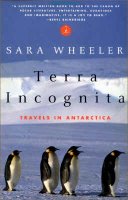
If you haven’t heard of Sam Harris by now, you are seriously behind the news wagon.
I believe it wasn’t by mistake that you end up here checking out this book? Most likely you heard about it from a coworker, a fellow churchgoer, or your friend’s mother (or wife) and most likely it went something like: “There is this fellow by the name of Sam Harris, who is trying to turn good and honest folks like yourself away from the truth…”
We all know that similar conversations in the past stirred movements like the inquisition or the infamous witch hunts. So, let’s just say these people were a little bit behind on their reading (they were behind on a lot more, but let’s be polite)
First and foremost, you need to proceed with a ‘very’ open mind when reading this book. See, it’s not that it will introduce something so incomprehensive or unreal that you’ll need to reread each page…oh, no, on the contrary, it will make so much sense, that the abundance of it will cause you to cringe. And cringing you’ll do until the last page.
And why, you ask? Because it has been so damn long (nearly 2,000 years) since someone stood up on the fifty-foot pedestal flashing the bright light in the faces of the masses and then pointing to the common sense that had been crucified in exchange for a couple of table spoons of a sugary substance called faith.
People, what went wrong? Was it our need to feel safe by disillusioning ourselves with beliefs in superstition and immortality? What else could it be? Deep down inside of us there is this basic need to be absolutely sure that the ego will stay alive forever. You know what I’m talking about. I am talking about the desire to persist for epochs. And what offers us this absolute guarantee? Yes, religion, you are catching on my dear reader. And what happens once we follow it? Slavery, torture, terrorism , death…stop me if it gets too monotonous.
But you won’t make sense of this review until you get your hands on a copy of this book. It will change your life.
-by Simon Cleveland

